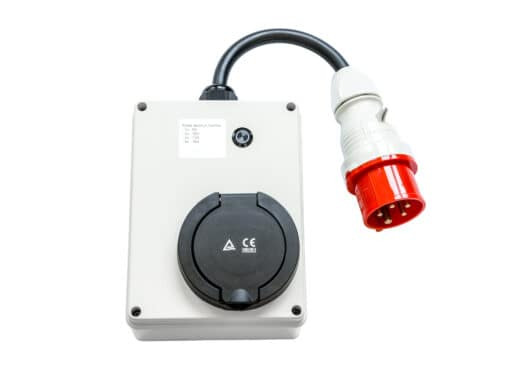#Emergency backup power for electric vehicles: Portable EV chargers with built-in batteries
Text
Portable EV Chargers: Charge Your Electric Vehicle Anywhere, Anytime
Electric vehicles (EVs) are becoming increasingly popular due to their environmental benefits, lower running costs, and technological advancements. However, one of the main concerns of owning an EV is finding a charging station when you’re on the road. This is where portable EV chargers come in. In this blog post, we will explore the benefits of portable EV chargers and how they work.
EXPLORE…

View On WordPress
#A#AC power#Adapter cables#Charging#Convenience#Convenient and cost-effective portable EV chargers for electric vehicles#Cost-effective#DC power#Efficient AC to DC power conversion for EV charging using portable chargers#Electric vehicles#Emergency Backup#Emergency backup power for electric vehicles: Portable EV chargers with built-in batteries#Exploring the benefits of portable EV chargers for environmentally conscious drivers#Maximizing the range of your electric vehicle with portable EV chargers and regenerative braking#Never run out of charge with portable EV chargers and adapter cables#Portability#Portable EV Chargers#Portable EV chargers: The future of charging for electric vehicles#Portable EV chargers: The solution for charging electric vehicles on-the-go#Stay charged on your road trip with portable EV chargers and solar panels#The portability advantage: Why you should invest in a portable EV charger for your electric vehicle
0 notes
Text
Navigating the World of Battery Chargers: Key Features, Types, and Applications
Battery chargers are essential devices that replenish the energy stored in rechargeable batteries, ensuring they remain operational and ready for use. Whether for consumer electronics, automotive applications, or renewable energy systems, battery chargers come in various types and designs to meet diverse charging needs. Let's explore the intricacies of battery chargers, highlighting their key features, types, applications, and the role they play in powering our modern world.
1. Introduction to Battery Chargers: Battery chargers serve as the lifeline for rechargeable batteries, providing the necessary electrical energy to restore their charge levels. They come in different configurations and charging methodologies tailored to the specific requirements of different battery chemistries and applications.
2. Types of Battery Chargers:
Linear Battery Chargers: Linear chargers regulate the charging current using linear voltage regulation, offering simplicity and low cost but are less efficient and generate more heat.
Switch-Mode Battery Chargers: Switch-mode chargers employ high-frequency switching circuits to regulate charging voltage and current efficiently, offering higher efficiency and reduced heat dissipation compared to linear chargers.
Pulse Chargers: Pulse chargers use pulsating currents to charge batteries, which can help rejuvenate and extend the lifespan of lead-acid batteries by preventing sulfation buildup.
Smart Battery Chargers: Smart chargers incorporate advanced charging algorithms and monitoring features to optimize charging parameters based on battery chemistry, voltage, temperature, and state of charge, ensuring fast and safe charging while prolonging battery life.
Solar Battery Chargers: Solar chargers harness solar energy to charge batteries, making them ideal for off-grid applications, outdoor use, and renewable energy systems such as solar power banks and portable solar panels.
3. Key Features of Battery Chargers:
Voltage and Current Regulation: Battery chargers regulate both voltage and current to ensure safe and efficient charging while preventing overcharging or undercharging.
Charge Indicator: Many battery chargers feature LED indicators or displays to indicate the charging status and battery capacity.
Safety Protections: Built-in safety features such as overcharge protection, short-circuit protection, and temperature monitoring help safeguard batteries and charging devices from damage or malfunction.
Compatibility: Battery chargers are designed to be compatible with various battery chemistries such as lead-acid, lithium-ion, nickel-cadmium, and nickel-metal hydride, offering versatility in charging different types of batteries.
4. Applications of Battery Chargers:
Consumer Electronics: Battery chargers power a wide range of consumer electronics devices such as smartphones, tablets, laptops, digital cameras, and portable gaming consoles, ensuring they remain powered up and ready for use.
Automotive Industry: Battery chargers are essential for charging automotive batteries, whether for conventional internal combustion engine vehicles or electric vehicles (EVs), ensuring they start reliably and maintain optimal performance.
Industrial and Commercial Applications: In industrial settings, battery chargers are used to recharge batteries for forklifts, industrial equipment, backup power systems, and emergency lighting, ensuring uninterrupted operation and productivity.
Renewable Energy Systems: Battery chargers play a crucial role in renewable energy systems such as solar power systems and wind turbines, storing excess energy in batteries for later use during periods of low generation or high demand.
5. Advancements and Innovations:
Fast Charging Technology: Advancements in fast charging technology enable rapid charging of batteries, reducing charging times significantly and enhancing user convenience, particularly for mobile devices and electric vehicles.
Wireless Charging: Wireless charging technology eliminates the need for physical connectors, offering convenience and flexibility in charging devices without the hassle of cables.
Smart Charging Algorithms: AI-powered smart charging algorithms continuously analyze battery health and usage patterns to optimize charging parameters, prolonging battery life and improving overall performance.
Energy Harvesting: Energy harvesting chargers utilize ambient energy sources such as solar, kinetic, or thermal energy to trickle charge batteries, offering sustainable and eco-friendly charging solutions for low-power devices.
6. Conclusion: Battery chargers play a crucial role in powering our modern world, ensuring that our electronic devices, vehicles, and industrial equipment remain operational and efficient. With ongoing advancements in technology, battery chargers continue to evolve, offering faster charging speeds, enhanced safety features, and greater compatibility with diverse battery chemistries and applications. As the demand for portable electronics, electric vehicles, and renewable energy systems grows, battery chargers will remain at the forefront of innovation, driving progress towards a more connected, sustainable, and energy-efficient future.
BATTERY CHARGER
TELECOM CHARGE CONTROLLER UNIT
0 notes
Text
Why Do We All Need a Car Battery Charger?
Undoubtedly, the car battery is a crucial component of your vehicle. Without it, your vehicle won't start and you won't be able to move. But when performing routine auto maintenance, few people consider the condition of their battery. You'll need an EV car portable charger for more than just emergencies. By having one, you can be tension-free for the rest of your journey. You will not have to worry about finding a charging station as they are not as abundant as gas stations.
What Is a Car Battery Charger?
Car battery chargers use an electrical current to recharge a car battery. As soon as they are plugged in, they draw AC current and change it to the 12-volt DC current that a battery stores.
EV car portable charger is a smart portable adapter/wall box with TYP2-CEE 16A/32A (400V) control electronics and a maximum power of 22kW (3x32A). Also capable of charging at 7,4kW in one phase or 11kW. (3x16A). Little, light, and transportable.
The possibilities for charging electric cars are expanded by the 22kW portable wall box (or smart adapter). It can be used specifically in locations with an industrial CEE socket but no public charging stand, station, or wall boxes, such as homes, garages, and workplaces. You can store this accessory in your trunk and have it available whenever you need to charge your device.
Why Do You Need a Car Battery Charger?
The battery is already kept fully charged in cars by a built-in mechanism. The alternator, which produces electricity while the engine is running, is responsible for that. This recharges the battery and provides the electrical power needed by the car's electronic systems.
When a car is running properly, the alternator does a great job of keeping the battery charged. But as soon as you turn off the engine, the battery starts to discharge on its own. A car battery typically self-discharges at a rate of about 1% per day, though this will vary depending on the season and be higher in the summer and lower in the winter.
This might not seem like much, but keep in mind that starting a car uses a lot of battery power, so you don't want the level to get too low. One of the main reasons batteries sulphate is deep discharges. Sulfur deposits accumulate during this process over time, reducing the battery's overall capacity.
You need a battery charger more and more as you use more of these electronic systems when the engine isn't running. You won't get stranded because you forgot to turn off the headlights, and it will also help the battery last longer.

Advantages of Owning a Car Battery Charger
Battery chargers for vehicles that aren't used every day were mentioned as a benefit. When you know your current battery is nearing the end of its useful life, they're also a great tool for maintaining batteries in storage and allowing you to keep a backup. They frequently have battery recovery capabilities. Many of today's smart chargers perform functions other than simply recharging your battery. Additionally, they frequently include recovery or desulfation programs, which use a brief energy pulse to clear sulfur deposits from the battery's plates. In many instances, you can use these programs to restore a damaged battery to its original capacity. Hence, an EV car portable charger is a better option.
0 notes